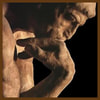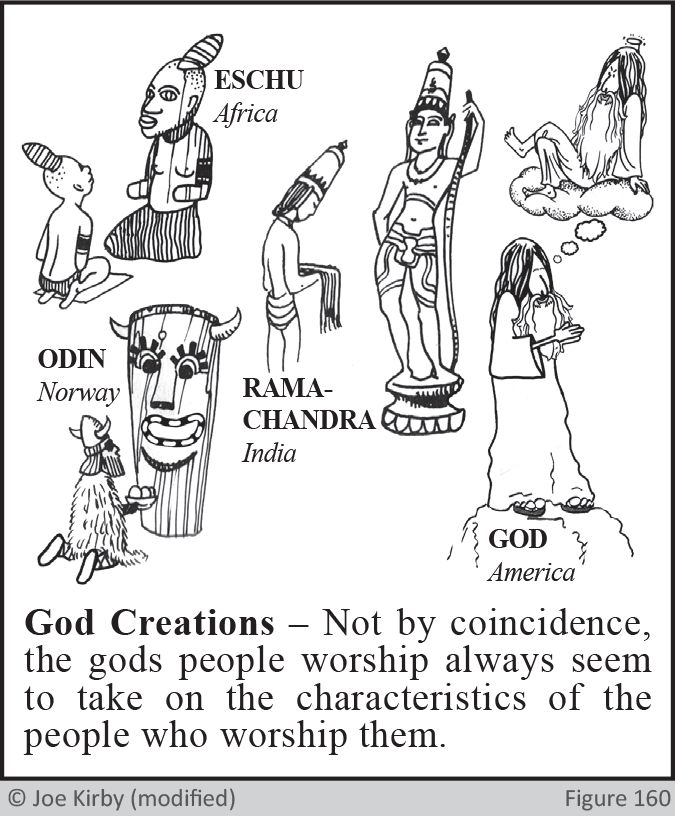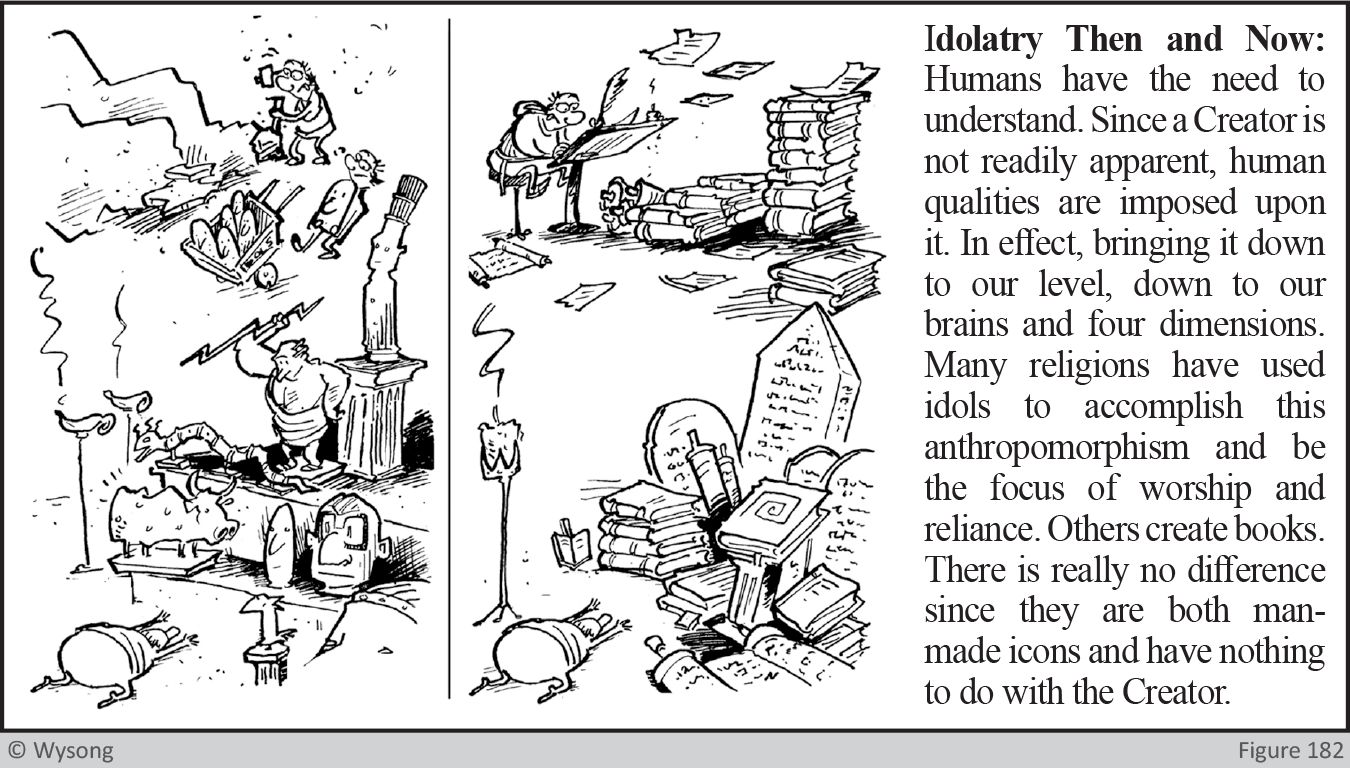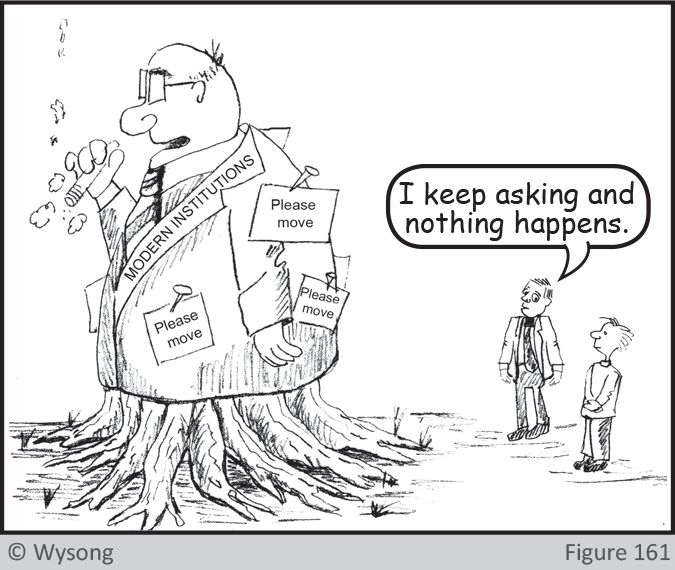Words of wisdom and miscellaneous facts by Dr. Wysong and others.
This is an accumulation over several decades and the accuracy cannot be attested to.
Wysong vs Nemos Bible Debate
COSMOLOGY LIES AS BIG AS THE UNIVERSE
⬇️ Click to scroll down to article
"We'll know our disinformation program is complete when everything the American public believes is false."
—William Casey CIA director 1981
The bigger the lie the greater its acceptance because people cannot believe authority figures would ignore reality.
To find truth we must hate the lie more than love accepted beliefs.
Fraud vitiates everything it touches. (common law maxim) Nudd v. Burrows (1875) 91 U.S. 416.
Fraud destroys the validity of everything into which it enters. Boyce's Executors v. Grundy (1830) 28 U.S. 210.
Fraud vitiates the most solemn contracts, documents and even judgments. United States v. Throckmorton (1878) 98 JU.S. 61.70.
FORWARD
The accepted cosmogony/cosmology (origin and nature of the universe) belief is:
—William Casey CIA director 1981
The bigger the lie the greater its acceptance because people cannot believe authority figures would ignore reality.
To find truth we must hate the lie more than love accepted beliefs.
Fraud vitiates everything it touches. (common law maxim) Nudd v. Burrows (1875) 91 U.S. 416.
Fraud destroys the validity of everything into which it enters. Boyce's Executors v. Grundy (1830) 28 U.S. 210.
Fraud vitiates the most solemn contracts, documents and even judgments. United States v. Throckmorton (1878) 98 JU.S. 61.70.
FORWARD
The accepted cosmogony/cosmology (origin and nature of the universe) belief is:
A Big Bang of nothing created an infinite meaningless universe containing atomic dust that gravitationally accreted into heavenly bodies including our Earthball moving in several different directions at 2.8 million mph and holding an atmosphere next to the vacuum of space while spontaneously forming life from primeval sludge that then evolved into complicated rocks called humans with no free will.
Long ago it became clear to me that the materialistic evolutionary part of that credo was false.
But I was on board with the cosmology part. After all, we see rocket ships going to and fro, there is a "Space Force," pictures of Earth and planets abound, astronauts float around and in the International Space Station, thousands of people and billions of dollars support it, and, of course, "all" the experts believe.
To question this is to be a conspiracy theorist, misinformationist, or even a lunatic. Oh my, we must, after all, follow the crowd.
The idea that we are being lied to about space didn't even enter my mind until a few months ago when what was left of my naive and trusting innocence had been totally demolished with the COVID-19 fraud.
We, the crowd, extend our trust to institutions charged with looking after our interests. But government, Big Medicine, education, media, industry, Big Tech, science, and NASA chase money, their own security, and even power over us.
That should not inspire confidence in beliefs they create, promote, protect with censorship, and even demand acceptance of.
If we want truth, we have to find it ourselves. To do that requires the opposite of trusting in others. It means sleuthing what the powers that be try to hide from us in internet archives, banned videos, censored "disinformation," and what "fact checkers" say isn't so.
Probing into the subject I was stunned to learn that:
That means unproven beliefs, stories, and even fakery are being passed off as science and truth.
This subject may seem inconsequential to everyday life. But that's only true if we aren't being lied to about it. If the truth is being hidden from us, we can be sure of one thing, it's not being done for our benefit.
Truth seekers learn that the scale and ostentatiousness of lies being fed to us means nothing can be tacitly trusted.
Everything of importance from government, media, industry, medicine, education, economics, science, history, religion, and popular society must be assumed to be false unless we prove otherwise by doing our homework and thinking critically.
This series will provide wake-up information to help you discover lies as big as the universe.
But I was on board with the cosmology part. After all, we see rocket ships going to and fro, there is a "Space Force," pictures of Earth and planets abound, astronauts float around and in the International Space Station, thousands of people and billions of dollars support it, and, of course, "all" the experts believe.
To question this is to be a conspiracy theorist, misinformationist, or even a lunatic. Oh my, we must, after all, follow the crowd.
The idea that we are being lied to about space didn't even enter my mind until a few months ago when what was left of my naive and trusting innocence had been totally demolished with the COVID-19 fraud.
We, the crowd, extend our trust to institutions charged with looking after our interests. But government, Big Medicine, education, media, industry, Big Tech, science, and NASA chase money, their own security, and even power over us.
That should not inspire confidence in beliefs they create, promote, protect with censorship, and even demand acceptance of.
If we want truth, we have to find it ourselves. To do that requires the opposite of trusting in others. It means sleuthing what the powers that be try to hide from us in internet archives, banned videos, censored "disinformation," and what "fact checkers" say isn't so.
Probing into the subject I was stunned to learn that:
| Nobody, including any scientist, can prove any aspect of the approved cosmogony/cosmology belief using experimentation and the scientific method. |
That means unproven beliefs, stories, and even fakery are being passed off as science and truth.
This subject may seem inconsequential to everyday life. But that's only true if we aren't being lied to about it. If the truth is being hidden from us, we can be sure of one thing, it's not being done for our benefit.
Truth seekers learn that the scale and ostentatiousness of lies being fed to us means nothing can be tacitly trusted.
Everything of importance from government, media, industry, medicine, education, economics, science, history, religion, and popular society must be assumed to be false unless we prove otherwise by doing our homework and thinking critically.
This series will provide wake-up information to help you discover lies as big as the universe.
"We'll know our disinformation program is complete when everything the American public believes is false."—William Casey CIA director 1981
"We know they are lying, they know they are lying, they know we know they are lying, we know they know we know they are lying, but they are still lying."—Aleksandr Solzhenitsyn
"We know they are lying, they know they are lying, they know we know they are lying, we know they know we know they are lying, but they are still lying."—Aleksandr Solzhenitsyn
|
1/24/2019
Click to enlarge, Ctrl + to enlarge further; Ctrl 0 to return to 100%
We are not born with the institutional ideas present in human-made religions. That much we know for sure. Religious ideas are schooled into us by fellow humans.
Moreover, way back at the beginning, there were no cathedrals, clergy, doctrines, or holy books. Humans began in a natural state, naked in the wild. Primitive Personal Religion No historian was there to record events, but we can reason on how religion must have begun. As a primitive person, you would have been dumbfounded by what you woke up to each day. You would have no idea why fruit appeared on trees, what caused babies, why autumn leaves fell, where you came from, and why there was death. The Earth would have seemed endless, the sun miraculous as it rose out of the Earth each morning and sank into it each evening. The heavens would be breathtaking. Lightning, thunder, fire, floods, volcanoes, tornados, hurricanes, and extreme hot or cold terrifying. You would certainly conclude that there were powerful forces behind it all and wonder what could be done to control them. Imagined mysterious and powerful human-like gods filled the bill. Just talk to them, imagine what you would want if you were them, do it, and all would be well. Tribal Religion As populations grew and people assembled into families, tribes, and nations, rules and leadership developed. Since there was no god booming directives from the sky, the opportunity arose for someone to speak for god(s). There was also the problem of conscience to contend with. Not wanting to do the hard work of weighing ethical choices ("don't make me decide, just tell me what to do"), and risking god ire, humans sought leaders who claimed the ability to know the will of the parent-like gods. Since visual images exert far more influence than spoken words, religious icons were created. They took on the nature of the people who created them.
Not surprisingly, the gods always have the same language, hands, eyes, noses, emotions, enemies, worldview, writing style, and erroneous science as the people in the region where the god was created.
Having power over others is a natural thing for all living creatures, particularly for humans. However, a mere human leader would always be suspect. On the other hand, being able to speak for a god would put a person in the most powerful unquestioned position on Earth. Little wonder rulers throughout time have claimed to speak for gods, or that they were gods themselves. Religious power could be gained and spread by military might—"I won the battle because god is on my side." Special abilities, such as making the moon disappear and reappear (ability to predict an eclipse), were helpful proofs of being god's earthly messenger. As the sun declined in the fall, and winter set in, people feared it would sink completely into the Earth and never return. Making the sun rise each day, and particularly at the winter solstice, by tearing the heart out of a person in sacrifice to the sun-god each morning, was convincing evidence as well. Religious dynasties were created giving power automatically to progeny. Leaders put strict regulations in place, with special emphasis on veneration and obedience. Those who didn't recognize the authority of the god-leader were labeled as enemies (later as heretics and infidels). This brought the faithful closely together with the goal of vanquishing the nonbelievers. Religious myths were passed orally with song and story. Later, when the tribal myths could be etched in stone or on parchments, they were better inoculated against doubt, as would befit any divine word from the gods. Also, being able to see words made the myths even more powerful through the unconscious bias of sight over sound (termed scriptism or graphocentrism). Such writings themselves became elevated and venerated as religious icons.
Holy writings and astrological meanings given to the stars had the added benefit of removing suspicion from the human leader. A mere human was not the author, he(usually) was just god's appointed agent for interpreting and passing the information on and executing it. However, and not accidentally, the human, as god's mouthpiece, became just like a god.
State Religion With the advent of agriculture, society was able to transition from wandering hunter-gatherer tribes into more stationary concentrated populations. Industry and technology enabled the production of more food than could be immediately consumed. Stored food permitted the division of labor and the support of standing armies, legislators, enforcers, and ruling clergy. Society became what its belly allowed. This is the time when people most dramatically separated into the rulers and the ruled. Those rulers held the reins of all religious, political, mercantile, and military power. The ruled became generic followers, some by force, some willingly. Today we worry about gasoline, electricity, cell phones, medical insurance, and the price of groceries. In past times, survival had to do with brute nature and the favor of the state and its religion. Torture, human sacrifice, hangings, burnings, dungeons, flaying, and drawing and quartering to punish and ferret out disobedience (sin) were just the necessary duties of the religious leaders who, ostensibly, were protecting the population from a volcano or pestilence. If the predictions or protections of the clergy didn't work, that could only mean more torturing and sacrificial blood-letting was needed. Religions Have to Be Intolerant Religious leaders policed beliefs in order to maintain identity, cohesiveness, and power. Those who ruled in religions were never interested in the independent thinking of the ruled. Honest and creative thinking was, and is, labeled arrogance or heresy, while blind following and intellectual laziness (faith) rise to the rank of virtue. Although all organizations must begin with a revolutionary individual who does the work of overturning the previous system (and being hated and persecuted for it), no established system encourages revolution against itself.
Religions tell inspiring tales of their heroic founders' sedition, but then must insist that the present organization is the ideal endpoint. No further change is needed other than a little incidental tweaking here and there as "new light" is revealed from the organization's "anointed" leaders.
No rabble-rousing apostates like Jesus, Mohammed, Luther, etc. allowed. Religious Retreat and Regrouping Here we will shift to a focus on Bible-based religions. Beginning around the sixteenth century, religious leaders had to increasingly contend with pesky intrusions by science, technology (like Gutenberg's printing press permitting people to learn on their own), and secular philosophy. It became increasingly difficult for the clergy to screen the knowledge accessible to the masses. Pressure was on religion to defend, for instance, Bible-based geology that explained the broken and twisted crust of the Earth by invoking the fury of a wrathful god against a "fallen world." (St. Jerome) John Wesley, the founder of the Methodists, argued that "sin is the moral cause of Earthquakes, whatever their natural cause may be." No longer could fossils be explained as "models made by the Creator" before he had fully made up his mind about how to go about the creation. Beringer (1725), a Wurzburg physician and university professor, defended his religion by stating that fossils are simply "stones of a peculiar sort, hidden by the Author of Nature for his own pleasure." Others concluded that fossils were put on earth as trials of human faith since they could not represent dead creatures because death could not have entered the world before Adam's sin. Churches made presentations of bones proving the antediluvian giants spoken of in the Bible. (Genesis 6:4; Numbers 13:33) Displays were even erected proving that the height of Adam was 123 feet 9 inches, Eve 118 feet 9 inches. The bones were later found to be from a mastodon. (This doesn't mean that there may not have been human giants in the past, although not likely of the 123-foot variety.) Veering from religious doctrine, as pontificated by those with a divine right to the Bible, was punishable by death or worse. Even possessing a Bible was punishable by death. Fear was life's driving force. So trying to be enlightened in those days was about as likely as trying to be enlightened while walking the gangplank or facing a herd of charging buffalo. Questioning was easily set aside by the prospect of torture in the dungeons or being roasted alive in the town square. Nevertheless, the scientific revolution eventually tightened the logical and factual noose and sent religion into retreat. Since religion was fundamentally about the awesome forces of nature controlled by gods, explaining those forces logically and by scientific proof emasculated or retired one god after another. Over the course of about a century, three hundred years ago, religion's grip on nature dramatically weakened. Once it was discovered that the Earth was not the center of the universe, it logically followed that man may not be the central and most important thing in the universe. This realization and the rest of the long list of embarrassing religious blunders exposed by advancing knowledge helped cause the rise of atheism, secularism, materialism, and evolution. Not wanting further embarrassment and loss of parishioners, the Catholic Church backed away from a strict literalist Bible view. Anything in it that conflicted with science or reason was relabeled poetic moral metaphor. Luther and others were more tenacious. The protestant reformation argued that by just interpreting the Bible correctly and removing ecclesiastical excess and error, all problems between the Bible and science could be resolved. Today religion has retreated into its primary bunker, faith. By definition, faith justifies belief in anything and is thus immune from reason, fact, and science. Reason and facts are useful in all areas of life, just not in religion except when by chance reason and facts happen to blend with belief. A case in point is the resurgence of Bible fundamentalism fueled by the discovery that creation, not materialism and evolution, is consistent with science. This is then extrapolated to mean the book is true through and through. But that can only be determined by measuring all it says by reason, facts, consistency, and ethics. So that's what we'll do next. If you agree, disagree, have questions, or have a correction please let me know. Comment below or email me at [email protected]
Leave a Reply. Choose Any Name
Comments
|
Solving the Big Questions
SECTIONSA: SEARCHING FOR TRUTHB: ORIGINS C: THE FINGERPRINT OF MIND D: RELIGION E: THE REAL REALITY F: OUR TRUE NATURE AND DESTINY CHAPTERSIntroduction1. Rules for Finding Truth 2. Truth Is Real and Accessible 3. Origin Choices 4. The Laws of Thermodynamics 5. The Law of Information 6. The Law of Impossibility 7. The Law of Biogenesis 8. The Laws of Chemistry 9. The Law of Time 10. Fossil Problems 11. Have Humans Evolved? 12. Are We Selected Mutants? 13. Favorite Evolution Proofs 14. Why Materialism Is Believed 15. Free Will Proves Creation 16. Design 17. Biological Machines 18. Nuts, Bolts, Gears, and Rotors Prove Intelligent Design 19. Humans Defy Evolution 20. The Anthropic Universe 21. Evolution’s Impact 22. Putting Religion on the Table 23. How Religion Begins and Develops 24. Religions Cross Pollinate 25. Gods Writing Books 26. Questionable Foundations of Christianity 27. How Best to Measure Holy Books 28. The Ultimate Holy Book Test 29. Religion Unleashed 30. End(s) of the World 31. Defending Holy Books 32. Faith 33. The Source of Goodness 34. Matter is an Illusion 35. Weird Things Disprove Materialism 36. Even Weirder Things 37. Creature Testimony 38. Personal Weirdness 39. Proving Weird Things 40. Skeptics and Debunkers 41. Free Will Proves We Are Other 42. Mind Outside Matter 43. Death is a Return 44. Life After Death 45. Why There is Suffering 46. What the Creator Is and Is Not 47. Thinking’s Destination $1 Million Reward Figures |


 YouTube
YouTube Podcast
Podcast



 Twitter
Twitter
0 Comments